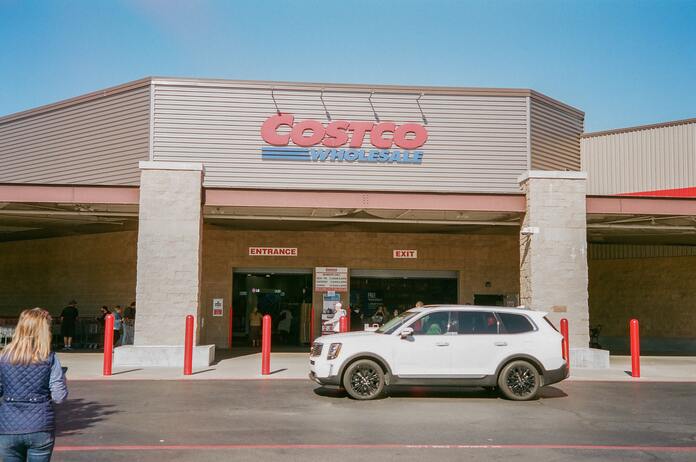Costco Wholesale (NASDAQ:COST) had a slow beginning to its new fiscal year, missing forecasts for earnings and revenue, resulting in a decline in Costco stock price.
Investors were on edge leading up to the release of Costco’s (NASDAQ:COST) first-quarter earnings report after the retailer stunned them with a November sales report that was less than they had anticipated the previous week. The findings that were made public on Thursday increased those fears.
Earnings per share came in at $3.07, and the company reported revenue of $53.44 billion. The consensus estimate for earnings per share was $3.11, while the expectation for revenue was $58.36 billion.
The decline in revenue was one of the factors that led to the company’s second consecutive quarter of margin compression. On Thursday, officials said the company’s gross margin had decreased by 45 basis points, equivalent to 0.45 percentage points.
Costco has turned in a strong performance over the past two years, which has been supported by a jump in demand from Costco’s wealthy customers, which has stayed stable even as some consumers have been forced to cut back on discretionary expenditures as a result of inflation.
Despite this, sales have begun to decline over the past few months as the continued impact of rising costs on household budgets has started to become more noticeable. The increase in same-store sales for the third quarter was 6.6%, higher than the projections of 6.4% growth. However, it was still a slower growth rate than the 13.7% increase seen during the previous quarter. E-commerce revenues decreased by 3.7%.
On a teleconference with investors, the chief financial officer, Richard Galanti, explained that the sharpest slowdown was seen in purchases of high-ticket items and discretionary goods. Galanti reiterated comments made by Walmart chief executive Doug McMillon on Wednesday regarding declining discretionary sales, emphasizing that retailers’ challenges are not concentrated around a single firm in any way.
And while there is a glimmer of hope at the end of this dark tunnel, he cautioned that it is still very faint and a long way off. According to Galanti’s calculations, the annual inflation rate for Costco’s merchandise was between 6% and 7% in the first quarter of this year. Although this is an improvement over the 8% inflation that the company had faced in the preceding quarter, it is still high in comparison to levels that have been seen in the past.
The Costco Stock Price Experienced a Decline
In premarket trading on Friday, shares of Costco fell 0.8% to a price of $477.82, bringing the stock’s overall loss for the year to 14%. The leniency shown by the market may be due, at least in part, to the fact that earnings and margins were compressed not by internal factors but rather by external factors such as fluctuations in foreign exchange rates and a one-time charge related to the downsizing of the company’s shipping activities.
In a call with Barron’s, the Edward Jones analyst Brian Yarbrough stated, “I think this is a company that has an excellent track record.” “The benefit of the doubt will probably be granted to them.”
He went on to say that this advantage might vanish if the following month’s sales report showed another slowdown in same-store sales; this is especially true when considering the expensive valuation of the company. The price-to-earnings ratio of Costco stock is 32.1, which is significantly higher than the rate at which shares of its competitors are traded.
Featured Image: Unsplash @ Grant Beirute















